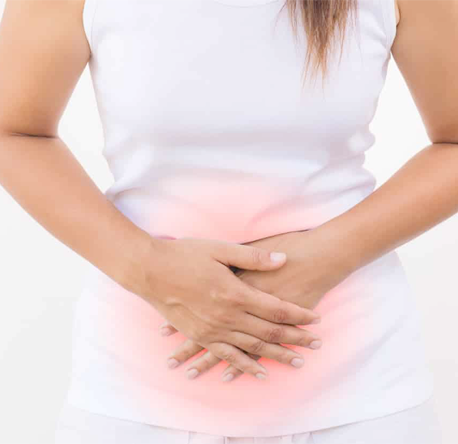Menstrual Health
Menstrual health is a state of complete physical, mental, and social well-being and not merely the absence of disease or infirmity, in relation to the menstrual cycle.
Menstrual health is integral to improving global population health, achieving the Sustainable Development Goals, and realising gender equality and human rights. Although the past decade has seen growing awareness of menstrual-related challenges, increased multi-sectoral investment is needed to comprehensively address the needs of all people who menstruate.
Research and practice have developed a nuanced understanding of menstrual experiences, and their intersections with physical, mental, and social health. Varied terminologies have evolved, but increasingly actors are using menstrual health to evoke a holistic framework relevant to the varied objectives of policy and programming. Despite broad usage, menstrual health lacks a formal, self-contained definition. This has complicated advocacy efforts and has led to fragmented action and funding for menstrual health as organisations struggle to conceptualise the topic and situate it within their mandates. A unified definition of menstrual health is thus needed to advance advocacy, policy, practice, and research, highlight the relevance of menstrual health across sectors, and facilitate communication across stakeholder groups.
Materials, facilities, and services
To support menstrual health, individuals must be able to select care practices that are preferable and comfortable for them, and be able to afford the resources required for self-care. These practices should support hygiene and minimise the risk of infection and harm. Women, girls, and others who menstruate must be able to care for their body with the level of privacy they desire such that they feel free from unwanted observation or disturbance, and in safety such that they are protected from risk of physical, emotional or social harm. Safety must be considered in the location of infrastructure and services, the quality of menstrual materials, infrastructure, and disposal practices. The menstrual health of the individual requires that disposal practices protect from emotional and social harm, while disposal practices are also contributors to environmental health Research has identified a broad range of practices undertaken by individuals to care for their body during menses, and the infrastructure and services required to support these. Self-care needs are not limited to accessing materials to collect menses, but include transporting and storing materials, and require facilities and services for changing materials, washing hands and the body, disposing of used materials and cleaning reusable materials which may include washing, drying and other sterilising practices such as ironing or boiling. These care needs are relevant throughout the day and night, both at and away from the home. Materials, facilities, and services need to be accessible to people with disabilities. Difficulties managing menstruation are a source of distress, irritation and discomfort, have been identified as barriers to education and employment, have been linked to potential reproductive tract infections, and can compromise social well-being.
Nishivarth, an Indian social development organization, is directly benefitting over 15 lakh children and their families every year. We have more than 400 live welfare projects on education, healthcare, livelihood, and women’s empowerment in over 2,000 remote villages and urban slums across 25 states of India. The groundwork for a better life lies in education. It is the most powerful catalyst for social transformation. However, a child cannot be educated in isolation. Only an empowered family, especially the mother, would be willing to educate their child. Thus, rather than focusing on only one stage of a person's life, we believe in the lifecycle approach. Education empowers an individual to earn their livelihood and also increases one's awareness on a range of issues. From healthcare, to appropriate social behavior, to understanding one's rights – Nishivarth seeks to educate, empower and cultivate better citizens.

Education For Poor Child
Our Preferred eCommerce Platforms
Ngo is a full-service eCommerce agency, delivering customized B2B and B2C eCommerce solutions by leveraging multiple platforms.
This made our souls happy…
Padla village of Banswara district, #Rajasthan, is an agricultural area where people’s main source of income is farming. Unfortunately, water scarcity and the challenges it brings led many of the locals work as laborers as well.
Nishivarth’s menstruation work during disasters
Nishivarth’s menstruation work during disasters…importance of MY Pads in Rahat Kits #Menstruation has always been one of the most disregarded issues in India.
A neighbor’s pride…
Akkolli, a remote village with little access to even bus services, is nestled in Wayanad district of Kerala, home to the tribal settlement of Churuli.
Giving wings to hope with a poultry farm
Narayanjote village in Jalpaiguri recently witnessed how the collective efforts and resolve of families towards the building of a community poultry farm could bring about a bright ray of hope for a stable livelihood in spite of the trials posed by Covid.

Services
When it comes to ensuring the success of an e-commerce website developed by our team of professionals, we follow an objective approach that is fully result-oriented and carefully fine-tuned based on individual client requirements.
Menstrual Livelihood as the way forward.
Highlights of our work from the ground. Our endeavors to support people return 'to normal' life, through our Vaapsi initiative.Respond to needs emerging from the ground.
Menstrual Winter is going.
This year, winter is going to be much tougher – especially for millions flood-affected across India who are still recovering and many women who make do with just 1-2 Saree’s throughout the year.
Menstrual Why Contribute for floods.
Why Contribute for floods to Goonj this Daan Utsav? A message from Mr. Anshu Gupta, Founder Goonj Millions of people across India are facing the wrath of floods right now..
Menstrual Struggling to survive floods.
People in many states across India are struggling to survive massive floods. We are there reaching urgent relief materials and will continue to support and build community resilience long after the floodwaters have receded.
Menstrual Developing training centers.
The waste cloth generated from the cities is channelised to some villages where women are learning stitching on sewing machines at a GOONJ training center. Apart from employment and income.
Menstrual Restoring lives
Pass a beggar on the road and one often hears “kuch kaam kyu nahi karte?”(why don’t you do some work?) routinely hurled at them. Ever wondered where do these people come from – unlettered.







